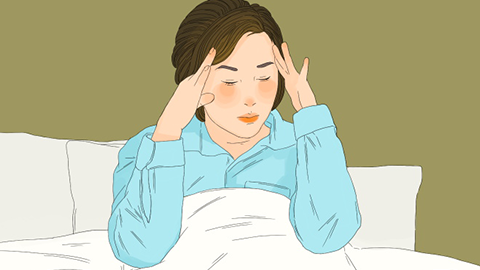What medication works best for insomnia and frequent dreaming?
Generally speaking, there is no specific medication that is considered the best for treating insomnia and frequent dreaming. Insomnia and frequent dreaming may be caused by environmental factors, mental stress, neurasthenia, anxiety, depression, and other reasons. It is recommended to seek medical attention promptly and, under the guidance of a physician, use medications such as Oryzanol Tablets, Vitamin B1 Tablets, Clonazepam Tablets, and Paroxetine Hydrochloride Tablets, which may be effective. Detailed explanations are as follows:

1. Poor Environment
A poor sleep environment, such as noise, bright light, excessive cold or heat, can stimulate the sensory system, causing the brain to remain alert, thus making it difficult to enter deep sleep and leading to insomnia and frequent dreaming. Usually, medication is not necessary. It is recommended to create a quiet, comfortable, and temperature-appropriate sleeping environment, such as using blackout curtains, earplugs for sound insulation, and adjusting the air conditioning temperature.
2. Unhealthy Lifestyle Habits
Irregular作息 patterns, such as chronic late-night stays and reversed day-night schedules, can disrupt the body's biological clock and cause disordered sleep cycles, possibly leading to insomnia and frequent dreams. Usually, medication is not necessary. Maintaining a regular作息 routine is important. Try to go to bed and wake up at the same time each day, and avoid strenuous exercise and stimulants before bedtime to help prevent this type of insomnia and frequent dreaming.
3. Neurasthenia
Neurasthenia is usually caused by prolonged mental tension and excessive stress, leading to dysfunction of the cerebral nerves. Brain nerve cells become easily excited and fatigued, thus affecting sleep and causing insomnia and frequent dreaming. Headache and dizziness are often accompanying symptoms. Under a physician's guidance, medications such as Oryzanol Tablets, Vitamin B1 Tablets, and Jiannao Bushen Pills can be used for treatment.
4. Anxiety Disorder
Anxiety disorders are commonly caused by a combination of genetic factors, neurobiological factors, and psychosocial factors. Patients often experience excessive worry and tension, with dysfunction in the limbic system and autonomic nervous system of the brain, which may result in insomnia and frequent dreaming. Symptoms such as restlessness and palpitations may also occur. Patients can follow medical advice to use medications such as Clonazepam Tablets, Paroxetine Hydrochloride Tablets, and Venlafaxine Hydrochloride Sustained-Release Capsules for treatment.
5. Depression
Depression may be related to genetic factors, changes in neurotransmitters, and alterations in brain neural structures. In patients with depression, levels of neurotransmitters such as serotonin and dopamine in the brain decrease, affecting the brain's regulation of emotions and sleep, which may lead to insomnia and frequent dreaming. Symptoms such as low mood and reduced interest may also be present. Patients can follow a physician's recommendations to use medications such as Fluoxetine Hydrochloride Capsules, Duloxetine Hydrochloride Enteric-Coated Capsules, and Mirtazapine Tablets for treatment.
Avoid using electronic devices before bedtime, as their blue light can suppress melatonin secretion and affect sleep. Increasing outdoor activities during the day and exposure to sunlight can help regulate the biological clock and improve sleep.




